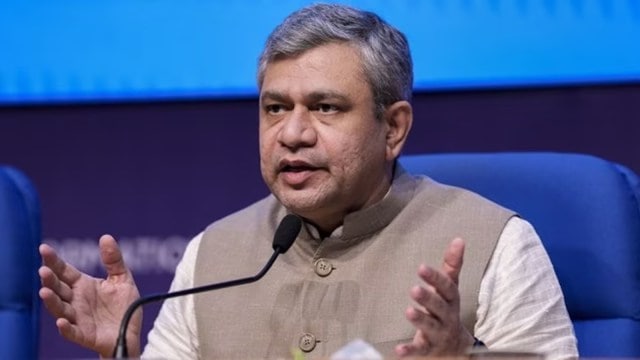New regulations to tackle deepfakes soon: IT Minister Vaishnaw
After chairing a meeting with social media platforms, artificial intelligence (AI) companies and industry bodies, Vaishnaw said the government will come up with a “clear, actionable plan” to tackle deepfakes and misinformation in the next ten days.
 The minister had summoned social media companies after a deepfake of actor Rashmika Mandanna was shared widely on social media. (PTI Photo)
The minister had summoned social media companies after a deepfake of actor Rashmika Mandanna was shared widely on social media. (PTI Photo) Union Information Technology Minister Ashwini Vaishnaw Thursday said the government will form regulations to control the spread of deepfakes on social media platforms, terming them a “new threat to democracy”.
After chairing a meeting with social media platforms, artificial intelligence (AI) companies and industry bodies, Vaishnaw said the government will come up with a “clear, actionable plan” to tackle deepfakes and misinformation in the next ten days.
He said that the plan will have four key pillars: detection of deepfakes, their prevention by removing or reducing their virality, strengthening reporting mechanisms, and spreading awareness about the technology.
The minister had summoned social media companies after a deepfake of actor Rashmika Mandanna was shared widely on social media. A deepfake is a video of a person in which the face or body has been digitally altered so that he or she appears to be someone else. This is typically used to spread false information.
The meeting highlighted the need for specific regulation for deepfakes, Vaishnaw said during a press briefing Thursday. The new legislation could be released through a new law, new rules or amendment to existing rules, Vaishnaw said, adding that all social media companies agreed that labelling and watermarking of deepfakes were necessary.
“We will have our next meeting in the first week of December… that will be on follow-up action on today’s decisions, and also on what should be included in the draft regulation,” Vaishnaw added.
Last Friday, Prime Minister Narendra Modi said it is important to understand how AI works as it could be used to create deepfakes to purposefully spread false information or have malicious intent behind their use.
The government will also work with other countries and geographies to ensure that there is a global collaborative effort to combat such content, Vaishnaw said.
“We are synchronising with other geographies where we can learn from what others have done and we can also share what our experiences are. There is a clear distinct bias in the AI generative algorithms and the models which are there so that bias also needs to be tackled,” he said.
Several deepfake videos targeting leading actors have been shared widely on social media platforms in the recent past, raising concerns over the misuse of technology for creating fake narratives.
Advertisements and sponsored posts on social media have been found to contain deepfakes of personalities such as Shah Rukh Khan, Virat Kohli and Akshay Kumar. While Khan is seen in a deepfake video for a game called Aviator, Kohli’s deepfake is in a video promoting a betting game.







